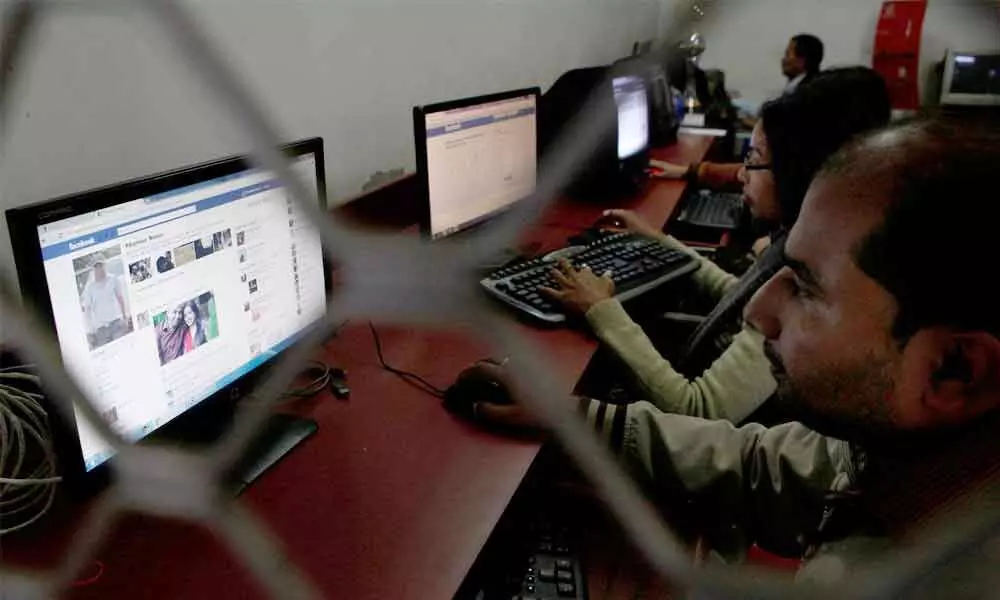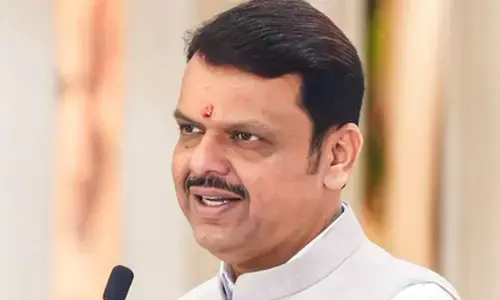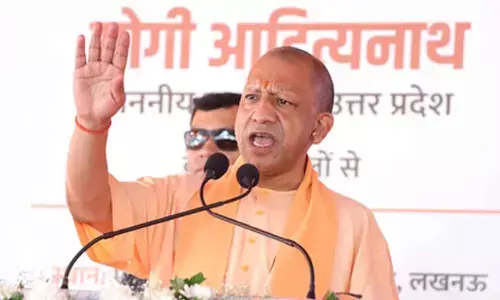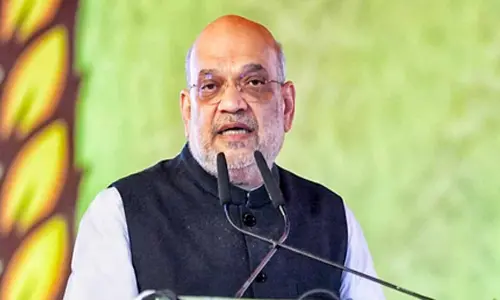Emerging new frontiers of Intelligence

The corona pandemic that posed a global threat to human life, affecting almost all countries, has rightly evoked thoughts on international cooperation for handling a natural disaster of this magnitude
The corona pandemic that posed a global threat to human life, affecting almost all countries, has rightly evoked thoughts on international cooperation for handling a natural disaster of this magnitude, importance of information on the origin, nature and scale of this danger for planning a response to what professionals would describe as a 'non-traditional threat' to security and last but not the least, an in-depth examination by the affected nations to make sure that this was not a man-made disaster attributable to some rogue quarters trying to initiate a 'biological' misadventure.
In the sphere of national security, the rationale for cooperation with other countries in both 'Intelligence sharing' and a 'coordinated response' in regard to a 'threat' is the convergence on the identification of the 'enemy' behind the threat. This is the raison d'etre of strategic alliances.
Conventional threats to national security emanated from the 'military' power of the enemy, the adversary's plans of espionage and, as is now an accepted phenomenon, the induction of 'non-State' actors - a term used for armed militants fostered by the adversary - to conduct a 'proxy war' through acts of terrorism.
Military threats had now acquired a nuclear dimension and expanded into the realm of space - and there is no pushing back from there. Since every country acts for its own self-interest - predecessors of President Donald Trump chose to hyphenate Pakistan with Indo-US relations on that plea - safeguarding national security becomes the sole responsibility of the sovereign power ruling the country.
In the wake of the corona pandemic that has hit the global economy to an unprecedented extent, the finance media has created a scare that China was moving in to buy out businesses across the world. That this could become a credible 'threat' is implied in the decision of India to screen all FDI proposals originating from neighbours 'across our land borders'.
Intelligence agencies now have an expanding area of responsibility in the sphere of economic security. Take-overs of businesses elsewhere can be used by a country like China to find 'berths' for its agencies in the new corporate entities - this may become a new tradecraft of Intelligence - gathering in times when international travel was on a discount.
The second threat that has grown exponentially is cyber warfare that represents the flip side of the IT revolution. The transformational event that brought about the shift from the Industrial Age to the Age of Information, came as a boon to the world community as it created a globalised economy to the advantage of all countries big or small.
However, since life of the nation today runs on systems based on IP networks, a major threat to national security now comes from a planned disruption of these systems carried out by the enemy through resort to hacking, planting of malware or subversion with the help of an 'insider'.
India, like all major countries, has created a huge national security infrastructure to defend the nation against cyberattacks - it is developing exclusive software protocols, screening out hardware options and sharpening the responses to any emergency caused by a 'breach'.
India faces an entire set of security risks, traditional and non-traditional, ranging from the threat to our borders from China and Pakistan who had a military alliance to the Pak-sponsored Islamic militants out to cause internal destabilisation here through terror attacks on our strategic economic assets.
India had successfully established Intelligence-sharing arrangements with the US on terrorism emanating from Pakistan while China, as expected, came to the rescue of its 'all weather friend' by resisting the UN move to designate LeT and Jaish-e-Mohammad chiefs as 'international terrorists'.
In as much as foreign policy is a product of national security and economic concerns, the role of our diplomatic community in enlisting world opinion against Pak-sponsored cross-border terrorism in Kashmir and elsewhere, has been extremely fruitful.
Both NSA and our foreign policy establishment have made successful efforts to isolate Pakistan internationally on the issue of radical Islamic terror. A new geo-political threat to India is also emerging on the marine front as China, with the silent support from Pakistan, was trying to enhance its access to Indian Ocean.
The Modi regime has cautiously moved towards QUAD -- a joint forum of US, Japan, India and Australia working for preserving the international order in the Indo-Pacific against the aggressive designs of China - and built a close relationship with ASEAN towards the same objective.
The Intelligence agencies of India have a crucial role ahead in assessing the plans of China for the Indian Ocean and its littoral States.
On the home front, the corona pandemic has added to the burden of keeping track of events that could deepen the internal divides in India and in particular aggravate the Hindu-Muslim tensions.
One after the other, issues of national policy have been exploited by the political leaders of the minority community to accentuate communal feelings - from the Act granting citizenship to Hindus persecuted in the neighbouring Islamic States to the punitive action initiated against the Tablighi Jamaat chief for holding a large Ijtema in Delhi in violation of corona restrictions.
The mandate of the government on 'social distancing' was for all social and religious gatherings. The community leaders should have squarely condemned the attempt of Maulana Saad Kandhalvi to pit 'faith' against a national health directive -- while giving the benefit of the doubt to the ordinary Muslims who might have turned up out of ignorance.
The machinery of the Centre and the States was being deployed to trace the missing Tablighi followers in various parts of the country. The community should have unitedly counselled the individuals concerned to report to the nearest health authority without fear, for their own good. As this did not happen - vote bank politics seemed to have come into play - a cycle of rumours started aggravating the communal front.
India's Intelligence agencies, who were adept at assessing the rise of any caste, communal or regional tensions in the country had to help the search for the 'missing' Tablighi elements and also look out for possible agents provocateurs or enemy agents trying to endanger India's security during the corona pandemic.
The reported participation of many Rohingya Muslims from the camps in India in the Tablighi Ijtema and their subsequent flight from there had added to the security concerns. Fortunately, India has seen a phenomenal rise of tech-Intelligence and this has helped our agencies to deal with the information challenge posed by the corona crisis.
Finally, the adverse economic impact of the corona lockdown on large sections of people dependent on daily wages or small jobs in metropolitan centres, will have to be monitored for any signs of public unrest brewing in any area.
While the central Intelligence machinery does its job, the Intelligence function of the state police has to be constantly evaluated by the Centre in the interest of internal security and stability of the country.
The horrific incident of planned lynching of an aged leader of a known Hindu sect along with his fellow saint and the driver of their car by a large group of miscreants in Palghar district of Maharashtra -- in the presence of two policemen from the nearby police post -- is a warning to the Centre that disruptive forces might be out there to create chaos in the country in this moment of national crisis.
Was the SP not in touch with his police stations who would have the local Intelligence about all that was cooking up in the area?
The Centre should make an example of this case to create an effective deterrence against what might otherwise become an unsettling trend of politically instigated public violence in the country. Our agencies must unearth all aspects of the ugly Palghar episode.
(The writer is a former Director Intelligence Bureau. Views expressed are personal)














